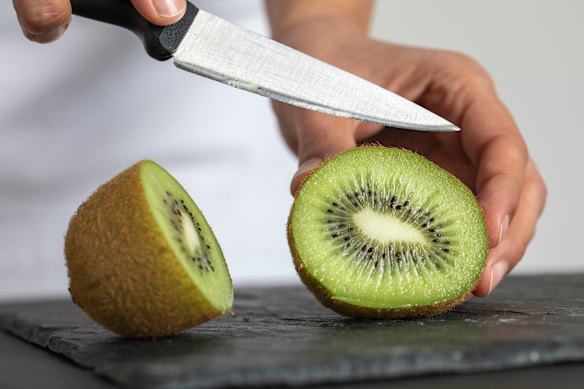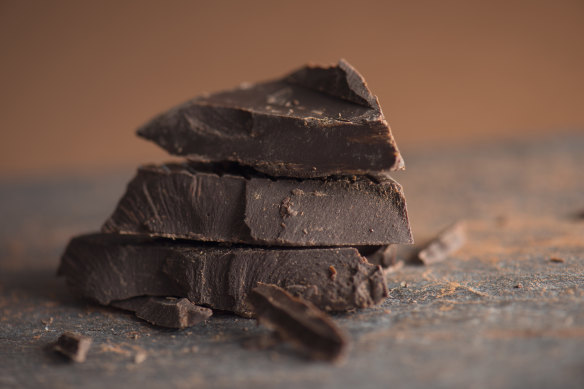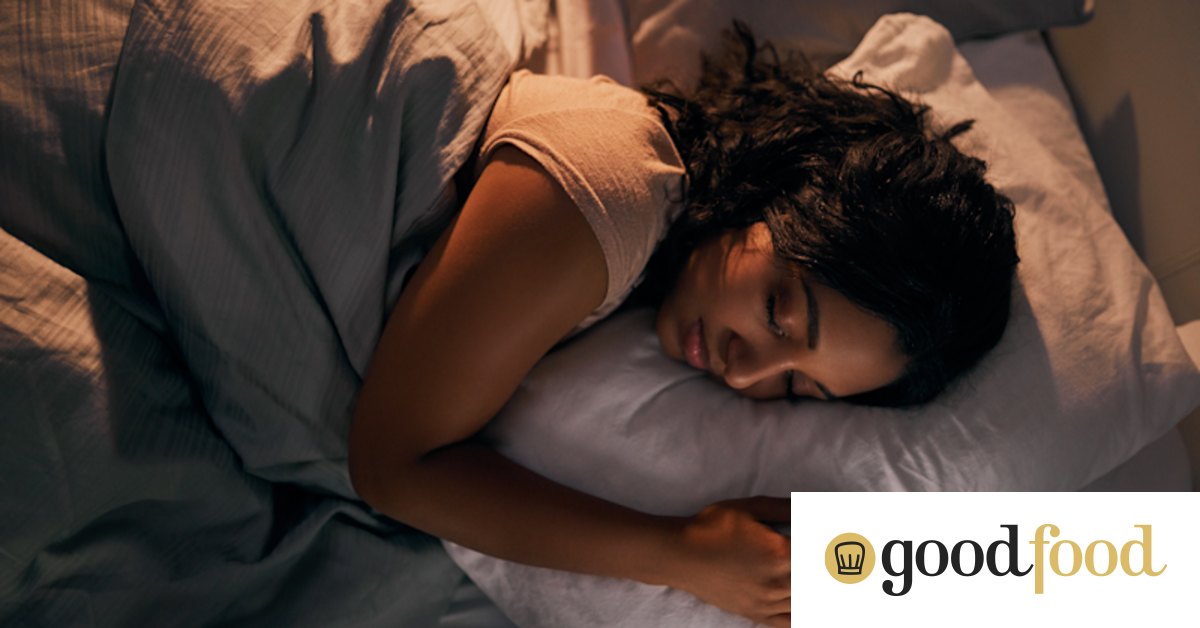If sleep eludes you, smart dietary changes such as changing meal times and eating certain superfoods may help.
 Save
Save
You have reached your maximum number of saved items.
Remove items from your saved list to add more.
Save this article for later
Add articles to your saved list and come back to them anytime.
Got it
If there’s one thing the average adult wants more of, sleep would be close to the top of the list.
For busy adults, it’s not only about getting enough sleep. It’s also about getting restful, good quality sleep, minus the 2am insomnia, night sweats and constant thoughts and worries affecting our ability to not only fall sleep, but to stay there.
While there are plenty of herbal remedies and supplements that claim to aid sleep, there’s also plenty of science on the subject, so if great sleep eludes you, it’s worth checking your diet to see if any changes may help with sleep volume and quality.
 The Mediterranean diet is linked to improved sleep.Sarah PoundRelated ArticleThe relationship between food and sleep
The Mediterranean diet is linked to improved sleep.Sarah PoundRelated ArticleThe relationship between food and sleep
While there are plenty of old wives’ tales when it comes to food and our health, when it comes to a glass of warm milk before bed to help you sleep, there is some decent science behind it. Protein-rich foods including milk, turkey, eggs and fish, as well as leafy greens and nuts contain the amino acid tryptophan. When metabolised, tryptophan is converted into serotonin and melatonin, both hormones intricately involved in regulating the sleep/wake cycle. As such, consuming foods rich in tryptophan within an hour or two of sleep should aid the process.
A closer look at the research investigating specific dietary patterns and sleep reveals that of all dietary patterns, it is the Mediterranean diet that has the strongest association with an improvement in sleep quality across self-reported study data available. While this data is relatively general, it does suggest a positive link between improved sleep and eating greater volumes of fresh food, less processed foods and a diet with strong anti-inflammatory properties.
Meal timing
A research area less frequently investigated, but one that theoretically makes sense is the way in which meal timing affects sleep. Busy, modern life can see many people have their largest meal of the day late into the evening, which potentially affects digestion, blood glucose levels and physical comfort. Indeed, there is emerging research to show that meal timing, as well as the number of meals, does affect sleep. One data set, of more than 7000 adults, recently found that meal times that shift later through the day, as well as eating more frequently, were both significantly associated with poorer sleep quality. This would suggest that one of the easiest ways to improve our daily sleep is to eat the final meal of the day earlier, where possible.
 Kiwi fruit contains natural melatonin and vitamin C.iStockThe sleep superfoods
Kiwi fruit contains natural melatonin and vitamin C.iStockThe sleep superfoods
Kiwi fruit
Maybe not always the first food that comes to mind when preparing for deep slumber, kiwi fruit has been shown to support sleep quality and duration in a small study conducted with athletes. Published in the journal Nutrients, 15 elite athletes were asked to eat two kiwi fruit one hour before bed over a four-week period. While self-reported, there were significant improvements across a range of sleep measures, which were attributed to the natural melatonin content of kiwi fruit, as well as its high vitamin C and antioxidant content.
Tart cherry juice
Not commonly found in Australia, tart cherry is increasing in popularity as a dietary supplement due to research that suggests cherry juice appears to help induce sleep. Cherries are naturally high in the amino acid tryptophan, as well as melatonin. Of the research available, adding a glass of cherry juice to your diet before bed appears to help extend sleep duration and aid sleep in those who have difficulty falling asleep.
Magnesium
A micronutrient found naturally in leafy greens, nuts, seeds and whole grains, magnesium has received a lot of attention in recent years, especially in relation to its beneficial effects on the muscle recovery, brain function and benefits when it comes to getting to sleep. Research looking at the role of concentrated magnesium L-threonate consumed in supplementary form published in the journal Sleep Medicine found that of 80 adults with reported sleep issues, those who supplemented magnesium L-threonate for three weeks reported improved sleep quality, energy, mental alertness and mood with no negative side effects.
 A few squares of chocolate after dinner may unknowingly be affecting your sleep.iStockAnd what to avoid
A few squares of chocolate after dinner may unknowingly be affecting your sleep.iStockAnd what to avoid
Watch your caffeine
While many of us may be interested in foods that can aid sleep, it’s important to realise some foods can also hinder it. One silent sleep saboteur you may not have considered is caffeine, which can slip into the diet via a wide range of “healthy” foods including dark chocolate, cola and energy drinks, and coffee and tea (including green tea). The stimulatory effects of caffeine can be experienced for several hours after consumption, which means that a sneaky hot chocolate or a few squares of your favourite block after dinner may unknowingly be affecting your sleep.
Avoid processed meat
There is also growing evidence to suggest that processed foods, in particular processed meats like salami, are associated with sleep issues. A small study published in the American Journal of Lifestyle Medicine found that of 104 patients recently diagnosed with obstructive sleep apnoea, those who were overweight and who ate a diet high in fat had sleep apnoea twice as severe as others. In addition, there was a specific association between processed meat consumption and sleep apnoea severity.
Consider your wine habit
While many of us may reach for a glass of wine to help relax after a long day, of all the substances we can consume, alcohol is close to the worst when it comes to sleep quality. Specifically, it is the quality REM sleep that is significantly affected. The more alcohol we drink (even with a relatively small amount, or just two standard drinks), the more pronounced the effect. Ultimately, this means that if quality sleep is on your mind, the less alcohol you consume, the better.
Related Article Related Article
Related Article
The best recipes from Australia’s leading chefs straight to your inbox.
Sign upSave
You have reached your maximum number of saved items.
Remove items from your saved list to add more.
![]() Susie Burrell is an accredited practising dietitian and nutritionist.From our partners
Susie Burrell is an accredited practising dietitian and nutritionist.From our partners

